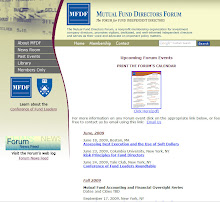It was the deregulation of financial derivatives that brought the banking system to its knees. The leading cause of the credit crisis was widespread uncertainty over insurance giant AIG’s losses speculating in credit default swaps (CDS), a kind of derivative bet that particular issuers won’t default on their bond obligations. Because AIG was part of an enormous and poorly-understood web of CDS bets and counter-bets among the world’s largest banks, investment funds, and insurance companies, when AIG collapsed, many of these firms worried they too might soon be bankrupt.
. . .
This could have been avoided if we had not deregulated financial derivatives.
According to Professor Stout, derivatives are not new, "are not really 'products' and they are not really 'traded.'" Rather, they are simply documented bets on future outcomes, typically used to hedge against risks, but sometimes used for pure speculation. It is this speculative use that amplifies their risk, because it disconnects the transaction from the economic interest underlying the the transaction, encouraging more speculation and risk-taking, and creating "asset price bubbles, reduced returns, price manipulation schemes, and other economic ills."
Regulations designed to keep this kind of speculation in check were removed, beginning with the Financial Services Act of 1986 in the UK and accompanied by the Commodity Futures Modernization Act (CFMA) of 2000, to disastrous effect.
The CFMA not only declared financial derivatives exempt from CFTC or SEC oversight, it also declared all financial derivatives legally enforceable. The CFMA thus eliminated, in one fell swoop, a legal constraint on derivatives speculation that dated back not just decades, but centuries. It was this change in the law—not some flash of genius on Wall Street—that created today’s $600 trillion financial derivatives market.Professor Stout argues that re-regulating the derivatives market would preserve the beneficial uses of derivatives, that is, allowing market participants to use them as economic hedges, while eliminating, or at lest curtailing their use for speculation. This re-regulation presumably would reduced the potential catastrophic risk posed by widespread speculative derivatives.
Unchecked derivatives speculation thus adds risk to the system by making it possible for individual speculators, like AIG (and Barings and LTCM and Enron and Bear Stearns) to lose very large amounts of money very unexpectedly.Professor Stout's proposed regulatory solution is a simple return to the rules of the past that refuse to enforce derivatives contracts with purely speculative motives.
. . .
Yet the data suggests that speculation, not hedging, drives over-the-counter financial derivatives markets. For example, we know the CDS market was dominated by speculation in 2008.
The old common law rule against difference contracts was a simple, elegant legal sieve that separated useful hedging contracts from purely speculative wagers, protecting the first and declining to enforce the second. This no-cost, hands-off system of “regulation” (there is no cheaper form of government intervention than refusing to intervene at all, even to enforce a deal) did not stop speculators from using derivatives. But it did require speculators to be much more careful about their counterparties, and to develop private enforcement mechanisms like organized exchanges that kept speculation confined to an environment where traders were well-capitalized and knew who was trading what, with whom, when. This approach kept runaway speculation from adding intolerable risk to the financial system. And it didn’t cost a penny of taxpayer money.
The full text of Professor Stout's blog post is available at: http://blogs.law.harvard.edu/corpgov/2009/07/21/how-deregulating-derivatives-led-to-disaster/





